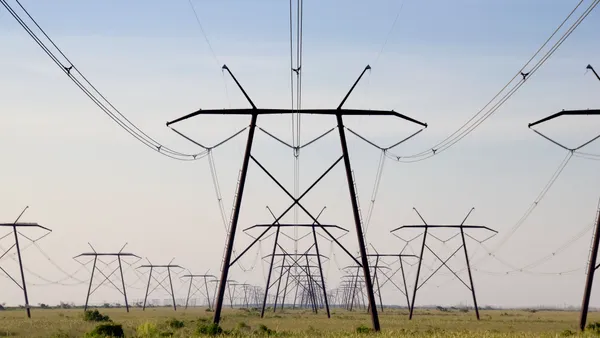Reese Rogers is the Southeastern market and policy innovation manager for the Clean Energy Buyers Association.
Expanding electricity market options in both North Carolina and South Carolina would benefit energy customers, help drive innovation and economic benefits for ratepayers, and improve grid reliability and resilience. North Carolina House Bill 503 — sponsored by Reps. Larry Strickland, Ed Goodwin, Kyle Hall, and John Torbett — would take an important first step toward realizing these advantages.
For all too long, ratepayers in the Carolinas have been limited to buying electricity in a monopoly utility market, resulting in fewer options for addressing threats to grid reliability. Customers experienced that lack of grid resilience with Duke Energy’s Christmas Eve blackouts that left half a million North Carolinians in winter cold and darkness.
Limited market options also mean higher costs for ratepayers. A 2019 Brattle Group analysis estimated that reforms would save North Carolina consumers up to $600 million per year. A 2020 study by Vibrant Clean Energy and Energy Innovation found that with a regional transmission organization, the Southeast region could save $384 billion by 2040, create 285,000 full-time jobs, and reduce emissions by 37%.
As a national business trade association representing more than 400 large energy customers, including companies that buy large amounts of energy in the Carolinas, we are concerned about limited options for ensuring grid reliability and market access to clean energy. Corporate, industrial, and institutional energy customers are making business decisions based on the availability of clean, reliable electricity. Opening the energy market in the Carolinas to more competition translates to more options to meet customer preferences and, in turn, supports economic development prospects throughout both states.
North Carolina’s neighbors to the south are a step ahead and have already commissioned a market reform study. Brattle Group analysts this spring told the South Carolina General Assembly’s Electricity Market Reform Measures Committee that South Carolina utility customers could save $285 million to $362 million a year if the Carolinas together joined a regional transmission organization. A North Carolina market study would determine the degree of savings for North Carolina customers.
Regional coordination on an electricity market and transmission planning would help the Carolinas realize efficiencies of exchange and economies of scale that come from expanded market access. North Carolina HB 503 calls for funding a market reform study that would be led by the University of North Carolina at Chapel Hill, assisted by an independent consulting firm with expertise in wholesale electricity markets. We applaud Rep. Strickland and the bill’s other sponsors for opening a path for North Carolina to move toward greater options for customer choice and grid reliability.
A recent study by Grid Strategies and the Clean Energy Buyers Institute found that large and small energy customers benefit from a robust transmission network driven by regional-level analysis. When the grid is congested, the local utility must dispatch higher cost generation and pass those costs on to customers. End-use customers have no control over this outcome, even when they have power arrangements directly with generators or indirectly through the utility.
The status quo for Southeastern regional transmission planning entities is to gather and report on individual utility transmission plans across the region. To benefit all customers and build trust in outcomes, the Carolinas and the rest of the Southeast instead need open and transparent regional planning that vets assumptions and methodologies, reviews alternatives, and establishes robust stakeholder engagement.
A well-designed organized wholesale market would support economic development and grid reliability in North Carolina and South Carolina. Both states should begin the process of moving toward the savings and benefits of building a resilient and streamlined grid of the future.













